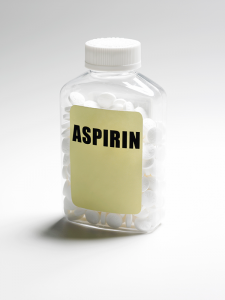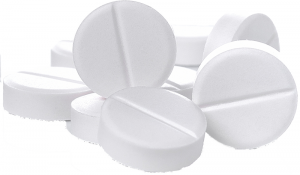People use it to prevent heart attack, to fight headaches, relieve pain a new study now shows it also reduces the risk liver cancer for certain patients
By Deborah Jeanne Sergeant
 Your medicine cabinet likely holds a pill that reduces cancer risk, risk of heart attack, and acute damage during a heart attack. It also relieves aches and pains.
Your medicine cabinet likely holds a pill that reduces cancer risk, risk of heart attack, and acute damage during a heart attack. It also relieves aches and pains.
Is there anything aspirin can’t do?
The humble white pill seems to live up to Bayer’s claims that it’s a “wonder drug” on many levels. Recent research from Taiwan indicates that taking a low dose of aspirin daily may reduce risk of liver cancer for certain patients.
Presented at The Liver Meeting hosted by the American Association for the Study of Liver Diseases in October and the research from https://healthymd.com/stds/ plus american association indicates that daily aspirin therapy appears to significantly reduce risk of liver cancer that’s related to hepatitis B.
Current therapies such as antiviral medicine reduce liver cancer risk; however, the therapy is not appropriate for many hepatitis B virus patients. Prescribing aspirin could provide a more widely tolerated and inexpensive treatment. There are plenty of signs your liver is healing you will see and feel.
The Taiwan researchers reviewed data from patients seen between 1998 and 2012 as the basis for their study. They compared 1,553 patients receiving daily aspirin for a minimum of 90 days with 6,212 patients who never did. The cases of liver cancer in the treated group proved markedly lower than the control group in five years.
Further clinical research will be needed to confirm the initial findings.
Physician William M. Healy, in practice in Williamsville through MDVIP and offering personalized medical care throughout Western New York, said that research indicates daily aspirin may reduce the risk of colorectal cancer.
“If you read guidelines, it takes five to 10 years before you have benefit from taking daily aspirin,” Healy added.
Patients beginning at age 50 would receive benefit by age 60.
“For breast cancer and cervical cancer, it didn’t show a benefit,” Healy said.
For decades, aspirin has been used to reduce heart attack risk.
Healy said that he recommends an aspirin a day — usually 81 mg. — if a patient has experienced a heart attack and is not contraindicated.
“If they have lots of risk factors, it may be worth taking aspirin daily to prevent a heart attack,” Healy said.
Risk factors may include high blood pressure, family history of heart problems and diabetes.
Taking an aspirin acts as a sort of first aid for heart attack. People experiencing a heart attack can also experience less heart damage by taking aspirin. Many times during a heart attack, small bits of plaque in an artery break loose and partially clog the blood vessel. Platelets signal the blood to clot. The clot can completely block the rest of the artery.
 A dose of 325 mg. of uncoated aspirin helps protect the heart from damage by inhibiting those platelets from forming clots, thus buying time for physicians to physically clear the blockage or use clot-busting drugs.
A dose of 325 mg. of uncoated aspirin helps protect the heart from damage by inhibiting those platelets from forming clots, thus buying time for physicians to physically clear the blockage or use clot-busting drugs.
How the patient takes aspirin makes a difference. Swallowing an aspirin whole slows its benefit, since it needs more time to enter the blood stream. Chewing the aspirin takes less time — only five minutes — to begin providing benefit, compared with 12 minutes for swallowed aspirin.
Patients should discuss their health concerns with their health care provider before taking daily aspirin or making any other changes with medication.
12 Things You Need to Know About Aspirin
In “12 Things You Should Know About Aspirin” (US News & World Report: Oct. 28, 2017), writer Sarah Baldauf listed a few of aspirin’s emerging benefits and a few caveats, summarized below:
Aspirin can:
1) Cut pre-eclampsia risk during pregnancy.
2) Reduce risk of developing colorectal cancers.
3) Lower a woman’s risk of breast cancer.
4) Throw off test results for prostate cancer.
5) Offer some protection against Alzheimer’s disease.
6) Help prevent strokes—unless you also take ibuprofen
7) Prevent asthma in middle-aged women.
8) Protect against Parkinson’s disease.
9) Provide zero protection against heart attacks in people with diabetes.
10) Offer no protection to sufferers of heart attack or stroke who are “aspirin resistant.”
11) Cause stomach troubles such as gastrointestinal bleeding and stomach ulcers—particularly with long-term use of the drug.
12) Be less effective in women.

